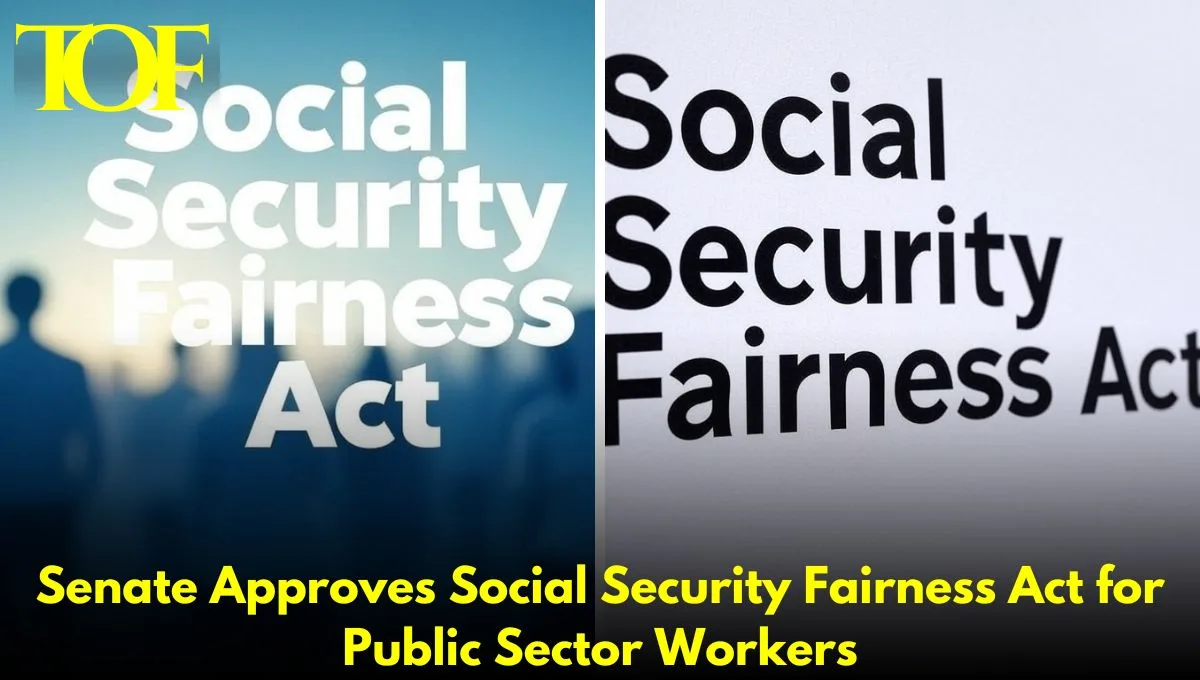In a historic bipartisan effort, the U.S. Senate passed the Social Security Fairness Act (SSFA) early Saturday, paving the way for nearly 3 million public sector workers to receive full Social Security benefits. The bill passed with a 76-20 vote and now awaits President Joe Biden’s signature, with benefits slated to begin after December 2023.
The SSFA abolishes two long-standing provisions—WEP and GPO—that have dramatically cut back Social Security payments to the workers who possess government pensions. These provisions have long been criticized for penalizing public servants such as teachers, police officers, firefighters, and postal workers who also paid into Social Security or whose spouses did.
Key Provisions and Impact
WEP cuts retirement benefits to early retirees who have less than 30 years of high-credited Social Security-covered work and receive government pensions. The GPO cuts spousal and survivor benefits of individuals receiving pension benefits other than those Social Security covered.
According to an estimate by the Congressional Research Service, these provisions apply to approximately 28 percent of the state and local government workers covered by alternate retirement plans and to the federal workers hired before 1984.
For public sector workers, repeal is a long overdue correction. “This legislation finally restores fairness to the system and ensures the hard work of teachers, first responders, and countless public employees is truly recognized,” said Shannon Benton, executive director of the Senior Citizens League.
Cost and Controversy
Marketed as a boon for the public employee, though it has come under strong criticisms over its fiscal impact, the SSFA was due to be repealed: CBO estimates that eliminating Social Security would add around nearly $200 billion over ten years to federal deficits. It may also send Social Security’s trust fund insolvent six months early into 2035 – CBO.
Despite these concerns, supporters have argued that fairness for retirees outweighs fiscal challenges. One of these supporters is Maine Senator Susan Collins. The senator referenced a 72-year-old retired teacher, who due to survivor benefit cuts has had to go back to work. “This is about correcting a 50-year mistake,” she remarked.
Next Steps
The bill is expected to be signed into law by President Biden in the coming days, and the benefits will be applied to payments after December 2023. Advocates see the passage as a giant leap toward equity for public sector retirees who have made the ultimate sacrifices and contributions.
This legislative milestone, on the one hand, resolves the decades-long complaints; on the other hand, it demonstrates that the Senate can easily get bipartisan solutions for millions of Americans.
To Read More: Global

